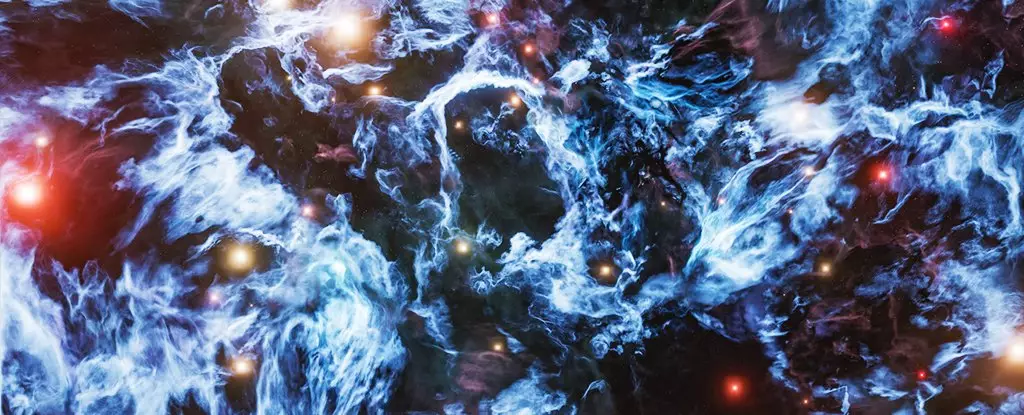In the realm of astrophysics, Albert Einstein’s theory of general relativity has reigned supreme for the past century, providing invaluable insights into the workings of the universe. However, as technology advances and scientists delve deeper into the cosmos, anomalies have begun to emerge that do not align with Einstein’s groundbreaking theory.
Recent studies conducted by a team of researchers from the University of Waterloo and the University of British Columbia have uncovered a peculiar “cosmic glitch” that challenges the fundamental principles of general relativity. By analyzing data from the cosmic microwave background – a remnant of the Big Bang – the researchers observed discrepancies that could not be explained by Einstein’s theory alone.
The core tenet of general relativity asserts that gravity arises from the curvature of space-time, a concept that has stood the test of time on smaller scales. However, when extrapolated to the largest cosmic scales, the researchers noted a deviation from Einstein’s predictions. This divergence, equivalent to a 1% gravity deficit, could potentially revolutionize our understanding of the universe.
One of the longstanding enigmas in astrophysics – the Hubble Tension – may find a resolution through this newfound cosmic glitch. Conflicting measurements of the universe’s expansion rate have baffled astronomers for years, but the introduction of a weakened gravity theory could offer a viable explanation. By bridging the gap between local and distant observations, this new perspective opens the door to a deeper understanding of cosmic phenomena.
The Need for Paradigm Shifts
While the validity of the cosmic glitch remains uncertain, its implications are far-reaching. Valerio Faraoni, a prominent physicist, emphasizes the importance of exploring unconventional ideas to unravel the mysteries of the universe. The limitations of general relativity may necessitate bold new theories that challenge our existing frameworks and pave the way for groundbreaking discoveries.
As the research continues, scientists are eagerly awaiting data from the Dark Energy Spectroscopic Instrument (DESI) to shed further light on the cosmic glitch. By examining the effects of dark energy on the expansion of the universe, researchers hope to uncover connections between disparate cosmic phenomena. The quest to redefine gravity and unravel the complexities of the cosmos remains a driving force in modern astrophysics.
The discovery of the cosmic glitch serves as a stark reminder of the ever-evolving nature of scientific knowledge. While Einstein’s theory of general relativity has stood as a cornerstone of astrophysics, the emergence of anomalies challenges us to rethink our fundamental understanding of the universe. By embracing uncertainty and venturing into the unknown, scientists may unlock the secrets that lie beyond the confines of traditional theories, reshaping our perception of the cosmos.


Leave a Reply